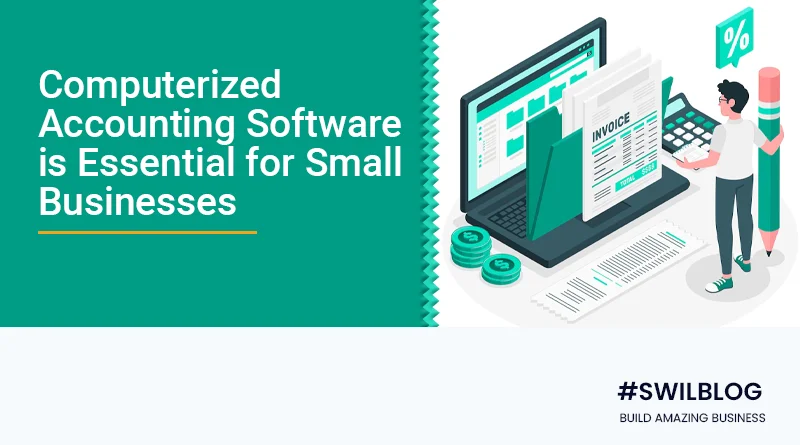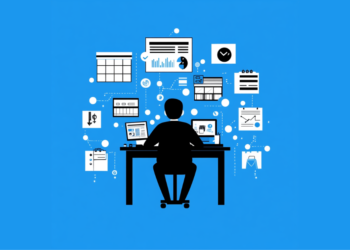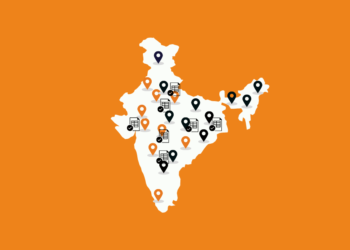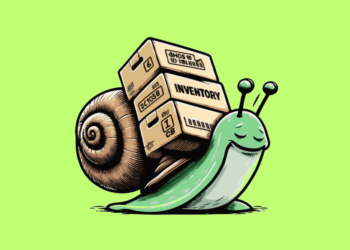Introduction
Accountants today no longer pen and pencil every transaction of a company or legal entity on a ledger with the help of pen and pencil. With the invention of computers, most occupations in India, including accounting, have become computerized. In the past few decades, computer data has been used mainly in science and technology. Yet, over the years, computerized accounting systems have also become more popular.
Although some accounting firms still maintain manual bookkeeping. For most accounting firms recording large volumes of financial transactions can be a very manual process. Before learning the importance of computerized accounting, we need to understand the various aspects of it. Keep reading further to get an in-depth understanding of it.
Article Content-
- Meaning of Computerized Accounting System
- Types of Computerized Accounting System
- Importance of a Computerized Accounting Software
- Uses of Computerized Accounting Software
- Robust features of Computerized Accounting Software
- Advantages of a Computerized Accounting Software
- Disadvantages of Computerized Accounting Software
- Wrapping Up
Meaning of Computerized Accounting System
A computerized accounting system is a software program that resides on a company’s computer or network server. It can be accessed remotely over the internet. A computerized accounting system allows you to create accounts of income and expenses. These include rental and sales income, salaries, advertising and material costs. It can also be used to manage bank accounts, pay bills, and prepare budgets.
Depending on the program, some accounting systems can also prepare tax documents. They can also process payroll, and manage project costing. In general, you can adapt the software as per your company’s needs. Companies need to ensure that employees are well trained to use this system. They need to understand how to use the system correctly which is critical to the successful use of your accounting program.
Types of Computerized Accounting System
There are several types of accounting software that are available around the globe. They are in general categorized into three types:-
1. Ready-made Software
This type of software is generally made for all users and does not have customizations. They don’t have specific elements that particularly benefit a particular category of users. The ready-made software is suitable for businesses with relatively low total accounting operations. This type of system requires minimal system support as compared to other accounting programs. They are usually cheaper. Moreover, the training for these software is relatively easy.
2. Custom Software
Custom Accounting Software Programs are software modified to meet each user’s specific needs. Such programs are typically used by large and medium-sized organizations. Custom software has higher maintenance efforts; they also need more technical installation efforts. The user has to pay a certain amount of money to the provider as a customization fee to buy the software. Advantages of using such an accounting system are increased data security and privacy. They also include ease of maintenance. Also, the user should be well trained before using this program for professional work.
3. Bespoke Software
As the name suggests, bespoke accounting software programs are developed for specific businesses. The software plays a vital role in a company’s business operations. This type of software is usually designed only for large enterprises. They require special training before the user becomes familiar with the operation of this software. Training helps employees to use the software accurately.
Importance of a Computerized Accounting Software
Investing in a Computerized Accounting Software is important for several reasons. Some of the benefits are listed below:-
1. Data Security
Computerized accounting systems allow users to store their data in one central location. Thus, even if you lose a paper having valuable information, there is no risk of the information being stolen. Data is stored in a centralized location.
2. Simplicity
Accounting software automates so much that very little is recorded manually. This helps us improve our reporting of transactions and statements.
3. Accuracy and Speed
Automating the accounting process with an accounting software ensures operations are completed quickly and accurately.
4. Scalability
Computerized accounting systems are flexible enough to adapt to changing business volumes.
5. Rapid Decision – Making
Computerized accounting systems generate real – time information. They enable managers to make immediate decisions or hurry solutions to specific problems.
6. Advanced Features
Some accounting programs are designed for sole proprietorships and small businesses. Others are tailored for large businesses. If your business operates at scale, consider a computerized accounting system. It offers features such as inventory management and multi-user access.
7. Reliability
Computerized accounting systems consistently produce standardized and accurate accounting information.
Uses of Computerized Accounting Software
- Accounting software automates and streamlines the accounting process. It uses computers to record and track a company’s financial transactions.
- Software is used for storing and analyzing financial records.
- It records purchases of goods and services, sales amounts & other financial transactions.
- Accounting software saves you time, money and resources.
- Accountants use this software to record and track financial transactions.
- This software is designed to make accounting tasks easier and more accurate.
Robust features of Computerized Accounting Software
A robust accounting software solution can take to new heights of success. The best billing software gives you an overview of your financial transactions. It also helps you meet the legal obligations required for smooth business operations. Some of the useful features are as below:
1. Billing
This is an important feature of the software that automates the collection process. In this process, you will never forget to send your bills. The billing system stores all customer data. It not only notifies you of unpaid bills, but also generates correct bills to your customers. Also, it helps us adhere to effective billing procedures as per industry standards.
2. Reporting
Computerized accounting software offers a wide range of reporting options. These include a balance sheet, income statement, cash flow statement and payroll. There is also a customizable reporting feature. It allows you to create reports to your liking. The system can also turn your financial data into graphs so you can understand where your money is going.
3. Banking
Computerized accounting software tracks bank accounts. It imports data from banks into the system. This feature prints checks, schedules bank payments and direct deposits, & automates bank payments.
4. Budgeting and Forecasting
A great tool to calculate and display your financial performance for the current and next fiscal year. Create a balance sheet summary to show how your business is currently doing so you can set realistic sales targets.
5. Inventory Management
Efficient billing software also manages inventory. This allows you to track the availability of your products so that delivery issues can be resolved quickly.
6. Payroll
Some software also includes advanced payroll modules to manage all aspects of payroll. This module allows you to generate employee payments and process checks on time. It also simplifies the process of managing variable salary plans, bonuses, and profit sharing. The software also allows you to fully follow your tax obligations.
7. Fund Accounting
This feature is designed for NGOs and public institutions. This feature helps for managing grants, tracking donations, and managing regulations.
8. Collaborative Ability
A computerized software allows contract accountants to be authorized to access financial records. Easily sync your data with your bank accounts and import financial reports in seconds.
9. Versatility
If your business is global, you may know how difficult it is to manage your finances across many currencies. Having the right billing system can simplify the process of collecting data from many locations. An accounting software can also record and display financial transactions in many currencies.
Advantages of a Computerized Accounting Software
1. Accuracy
Accounting errors are one of the biggest problems companies face in their accounting process. Accounting software is designed to anticipate and correct common errors before they are added to company records. More accurate than most manual systems.
2. Simplicity
No matter the size of your business, our accounting software is designed to be simple and easy to use. This way new employees can quickly find the system and record their financial activities.
3. Financial Reporting Accuracy
Accounting software is designed to be absolutely accurate. Businesses can be confident that the financial report is free of errors. This means managers can quickly make decisions based on accounting data.
4. Standardized Financial Reporting
The use of accounting software within a company ensures standard financial statements. These reports are very important when comparing a company’s financial performance over time. Or even when comparing different companies that operate in a similar manner.
5. Greater Control
Computerized accounting systems help company management have more control over their operations. This is suitable for large companies with multiple departments. All important information is at your fingertips with just one click.
6. Integration
Most accounting systems are usually integrated with other major accounting systems. For example, online banking. Critical business processes are quickly put together and completed with the help of software.
Disadvantages of Computerized Accounting Software
1. Cost
Accounting software is designed to simplify bookkeeping. It reduces the cost of accounting services, but it can also be expensive to set up and maintain. Many companies choose computerized accounting systems once they reach a certain level of growth.
2. Lack of expertise
Many entrepreneurs prefer to keep their accounts in-house. This means that you don’t want to rely on an outside service to do your bookkeeping. In this case, you may choose to use a manual system until you have the resources to implement computerized accounting tools.
3. High installation and training costs
The cost of accounting software depends on how it is used. Some software is sold at very high prices that are out of reach for the company. Besides acquisition costs, installation and training costs are also very high and out of reach for the company.
4. Work Disruption
As new versions of both hardware and software are released, companies must update them on a regular basis. Employees need to be retrained to use these new tools effectively. Reinstallation and retraining are disruptive.
5. Loss of Job Security
With the introduction of computerized accounting software, many tasks are being done by fewer people. Such steps may lead to layoffs. If layoffs are not in place, employees live in fear of expected job losses.
6. Decline in Accuracy
The accuracy of financial records is only as good as the data feeding accounting software. If the accuracy of the data entered is improper, the software will generate inaccurate accounting info.
7. Potential Fraud
Since most financial/accounting data is stored in the cloud, professional hackers can gain access to company records. Such conduct may expose Company assets to greater risk.
8. Technical Malfunctions
Accounting software may become unusable if the facility where the company is hosted is affected by technical malfunctions. These include power outages and computer virus attacks.
Wrapping Up
We can conclude that computerized accounting software has become a necessity for businesses. It serves as a valuable business asset. It helps gain a competitive edge while strengthening customer relationships. But, with a variety of accounting software solutions on the market, you should carefully choose the right accounting software.
SWIL software helps to take your business to the next level. The best way to choose the right software is to analyze your company’s accounting needs along with SWIL software’s features and strengths. Visit our website TODAY for more details!








